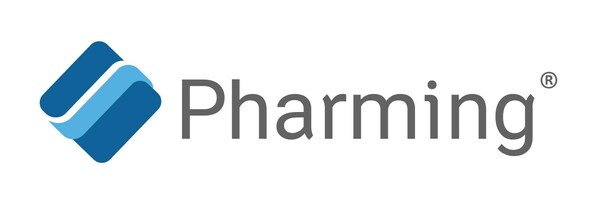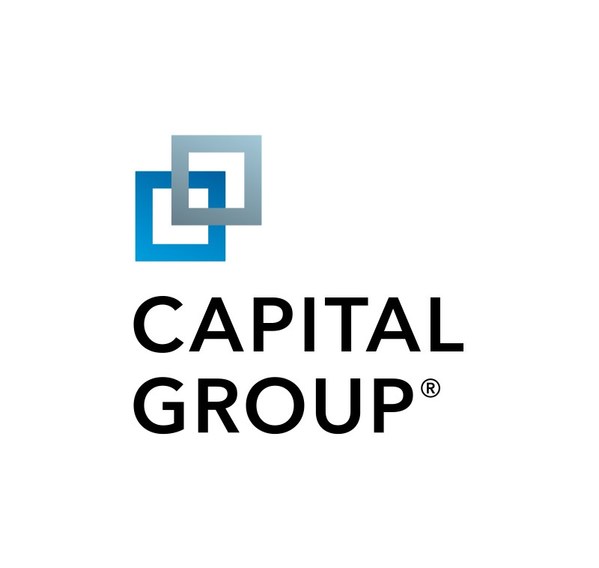 |
EMA Marketing Authorisation Application for leniolisib changed to standard review timetable
LEIDEN, Netherlands, Feb. 16, 2023 /PRNewswire/ -- Pharming Group N.V. ("Pharming" or "the Company") (EURONEXT Amsterdam: PHARM) (Nasdaq: PHAR) announces that the European Medicines Agency's (EMA) Committee for Human Medicinal Products (CHMP) has decided to shift its assessment of the Marketing Authorisation Application (MAA) for leniolisib to a standard review timetable. Leniolisib is an oral selective phosphoinositide 3-kinase delta (PI3Kδ) inhibitor under regulatory review as a treatment for activated phosphoinositide 3-kinase delta syndrome (APDS), a rare primary immunodeficiency, in adolescents and adults 12 years of age and older.
Pharming has received the list of questions from EMA which included a request to submit updated data from the ongoing long-term extension study collected after the interim analysis included in the original MAA. Based on the timetable for our responses, Pharming expects that CHMP will issue its opinion on the leniolisib MAA in 2H 2023.
Sijmen de Vries, CEO of Pharming commented:
"We are continuing to work with EMA through the MAA review process and remain dedicated to seeking regulatory approval of leniolisib within the European Economic Area. In the US, the FDA's priority review of the leniolisib NDA remains on track, with a PDUFA goal date of March 29, 2023. We remain focused on achieving regulatory approvals and bringing leniolisib to patients living with APDS worldwide."
Following the grant of accelerated assessment in August 2022, EMA validated Pharming's MAA for leniolisib for scientific evaluation under an accelerated assessment by the CHMP in October 2022. The MAA is supported by positive data from a Phase II/III study of leniolisib, announced on February 2, 2022, which met its co-primary endpoints of reduction in lymph node size and increase in percentage of naïve B cells in patients with APDS. Furthermore, safety data from the study showed that leniolisib was well tolerated by participants. Also submitted as part of the original MAA were data from a long-term, open-label extension clinical trial in patients with APDS treated with leniolisib.
About Activated Phosphoinositide 3-Kinase δ Syndrome (APDS)
APDS is a rare primary immunodeficiency that affects approximately 1 to 2 people per million. APDS is caused by variants in either of two genes, PIK3CD or PIK3R1, that regulate maturation of white blood cells. Variants of these genes lead to hyperactivity of the PI3Kδ (phosphoinositide 3-kinase delta) pathway.2,3 Balanced signaling in the PI3Kδ pathway is essential for physiological immune function. When this pathway is hyperactive, immune cells fail to mature and function properly, leading to immunodeficiency and dysregulation.2,4 APDS is characterized by severe, recurrent sinopulmonary infections, lymphoproliferation, autoimmunity, and enteropathy.5,6 Because these symptoms can be associated with a variety of conditions, including other primary immunodeficiencies, people with APDS are frequently misdiagnosed and suffer a median 7-year diagnostic delay.7 As APDS is a progressive disease, this delay may lead to an accumulation of damage over time, including permanent lung damage and lymphoma.5-8 The only way to definitively diagnose this condition is through genetic testing.
About leniolisib
Leniolisib is a small-molecule inhibitor of the delta isoform of the 110 kDa catalytic subunit of class IA PI3K. PI3Kδ is expressed predominately in hematopoietic cells and is essential to normal immune system function through conversion of phosphatidylinositol-4-5-trisphosphate (PIP2) to phosphatidylinositol-3-4-5-trisphosphate (PIP3). Leniolisib inhibits the production of PIP3 and PIP3 serves as an important cellular messenger activating AKT (via PDK1) and regulates a multitude of cell functions such as proliferation, differentiation, cytokine production, cell survival, angiogenesis, and metabolism. Unlike PI3Kα and PI3Kβ, which are ubiquitously expressed, PI3Kẟ and PI3Kγ are expressed primarily in cells of hematopoietic origin. The central role of PI3Kẟ in regulating numerous cellular functions of the adaptive immune system (B-cells and, to a lesser extent, T cells) as well as the innate immune system (neutrophils, mast cells, and macrophages) strongly indicates that PI3Kẟ is a valid and potentially effective therapeutic target for immune diseases such as APDS. To date, leniolisib has been well tolerated during both the Phase 1 first-in-human trial in healthy subjects and the Phase II/III registration-enabling study in patients with APDS.
About Pharming Group N.V.
Pharming Group N.V. (EURONEXT Amsterdam: PHARM/Nasdaq: PHAR) is a global biopharmaceutical company dedicated to transforming the lives of patients with rare, debilitating, and life-threatening diseases. Pharming is commercializing and developing an innovative portfolio of protein replacement therapies and precision medicines, including small molecules, biologics, and gene therapies that are in early to late-stage development. Pharming is headquartered in Leiden, Netherlands, and has employees around the globe who serve patients in over 30 markets in North America, Europe, the Middle East, Africa, and Asia-Pacific.
For more information, visit www.pharming.com and find us on LinkedIn.
Forward-looking Statements
This press release may contain forward-looking statements. Forward-looking statements are statements of future expectations that are based on management's current expectations and assumptions and involve known and unknown risks and uncertainties that could cause actual results, performance, or events to differ materially from those expressed or implied in these statements. These forward-looking statements are identified by their use of terms and phrases such as "aim", "ambition", ''anticipate'', ''believe'', ''could'', ''estimate'', ''expect'', ''goals'', ''intend'', ''may'', "milestones", ''objectives'', ''outlook'', ''plan'', ''probably'', ''project'', ''risks'', "schedule", ''seek'', ''should'', ''target'', ''will'' and similar terms and phrases. Examples of forward-looking statements may include statements with respect to timing and progress of Pharming's preclinical studies and clinical trials of its product candidates, Pharming's clinical and commercial prospects, and Pharming's expectations regarding its projected working capital requirements and cash resources, which statements are subject to a number of risks, uncertainties and assumptions, including, but not limited to the scope, progress and expansion of Pharming's clinical trials and ramifications for the cost thereof; and clinical, scientific, regulatory and technical developments. In light of these risks and uncertainties, and other risks and uncertainties that are described in Pharming's 2021 Annual Report and the Annual Report on Form 20-F for the year ended December 31, 2021, filed with the U.S. Securities and Exchange Commission, the events and circumstances discussed in such forward-looking statements may not occur, and Pharming's actual results could differ materially and adversely from those anticipated or implied thereby. All forward-looking statements contained in this press release are expressly qualified in their entirety by the cautionary statements contained or referred to in this section. Readers should not place undue reliance on forward-looking statements. Any forward-looking statements speak only as of the date of this press release and are based on information available to Pharming as of the date of this release. Pharming does not undertake any obligation to publicly update or revise any.
Inside Information
This press release relates to the disclosure of information that qualifies, or may have qualified, as inside information within the meaning of Article 7(1) of the EU Market Abuse Regulation.
References
1. Rao VK, et al. Blood. 2022. https://doi.org/10.1182/blood.2022018546.
2. Lucas CL, et al. Nat Immunol. 2014;15:88-97.
3. Elkaim E, et al. J Allergy Clin Immunol. 2016;138(1):210-218.
4. Nunes-Santos C, Uzel G, Rosenzweig SD. J Allergy Clin Immunol. 2019;143(5):1676-1687.
5. Coulter TI, et al. J Allergy Clin Immunol. 2017;139(2):597-606.
6. Maccari ME, et al. Front Immunol. 2018;9:543.
7. Jamee M, et al. Clin Rev Allergy Immunol. 2019;May 21.
8. Condliffe AM, Chandra A. Front Immunol. 2018;9:338.
For further public information, contact:
Pharming Group, Leiden, The Netherlands
Michael Levitan, VP Investor Relations & Corporate Communications
T: +1 (908) 705 1696
Heather Robertson, Investor Relations & Corporate Communications Manager
E: investor@pharming.com
FTI Consulting, London, UK
Victoria Foster Mitchell/Alex Shaw/Amy Byrne T: +44 203 727 1000
LifeSpring Life Sciences Communication, Amsterdam, The Netherlands
Leon Melens T: +31 6 53 81 64 27 E: pharming@lifespring.nl
US PR
Ethan Metelenis E: Ethan.Metelenis@precisionvh.com T: +1 (917) 882 9038
EU PR
Dan Caley E: Dan.caley@aprilsix.com T: +44 (0) 787 546 8942












